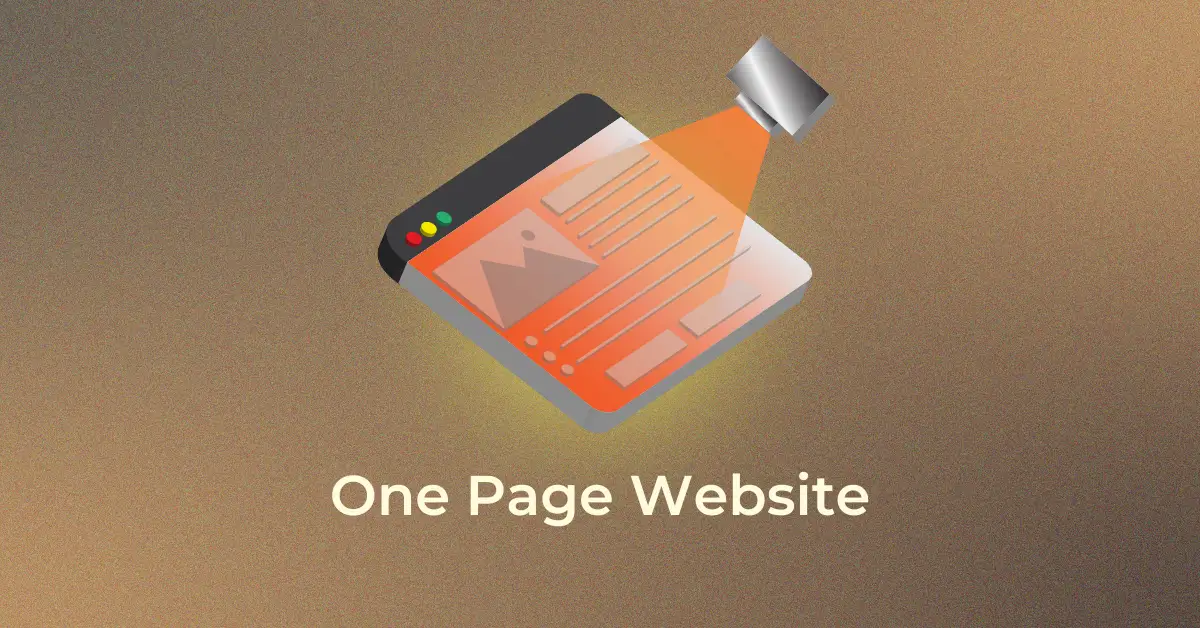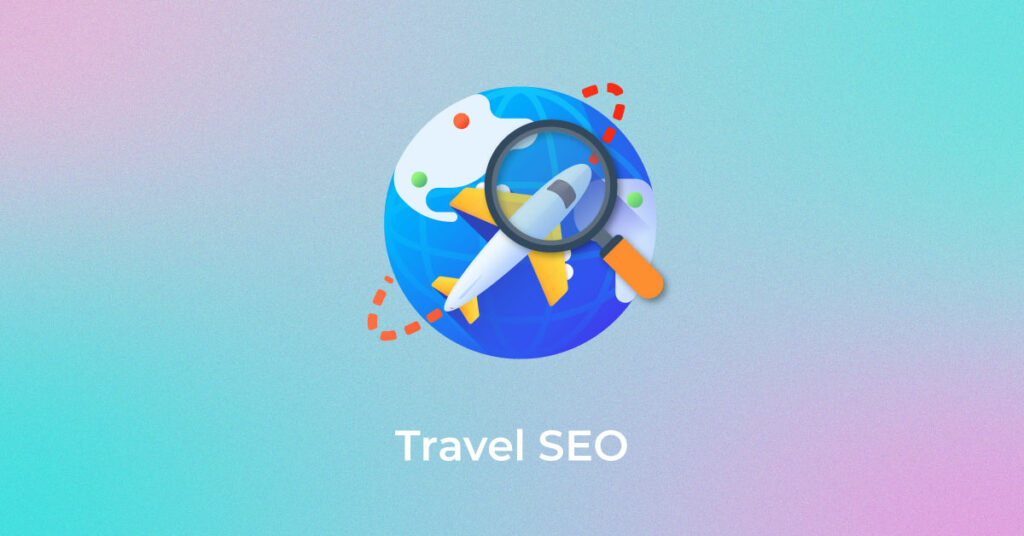|
Getting your Trinity Audio player ready...
|
Why Do Travel Companies Require Travel SEO?
Most of us begin our travel planning on search engines.
These search engines direct travelers toward travel websites. A vast majority of these would-be travelers – as much as 95% – only travel to websites that rank within the top 3 to 5 on the first SERP.
It is now no longer a matter of debate that your travel business will lose customers if it doesn’t rank within the top 5 on the first SERP. Hardly anybody visits the second page. There is very little incentive to do that.
To increase your sales, you need to drive organic traffic to your website. Relevant organic traffic that is ready to spend money on your website.
For this, you need a robust long-term SEO (Search Engine Optimization) strategy to ensure that your travel website ranks highly on the first SERP.
SEO can do a world of good for your travel website and business.
It can
- improve your rankings in SERPs for relevant user queries;
- boost brand awareness;
- drive organic search traffic to your travel website;
- increase your leads from search engines cost-effectively;
- help you stay ahead of your competitors;
- increase your sales;
- boost ROI
Travel SEO Tips
Research Your Keywords
Which words are your potential clients most likely to search for? Research on this can help you rank your website higher. Website visibility and traffic can be boosted by adding relevant keywords. For example, any search for ‘Europe travel packages’ will include your website on the first SERP if it is optimized for this and similar words and phrases. Numerous tools are available to find popular keywords for your business website. Once you have your keywords, insert them into your website in various ways, like blog posts, meta descriptions, etc.
Utilize Your Keywords Strategically
Now that you have your list of keywords and phrases, make a strategy for their use. You may not use them all at once. Plan your website content according to the time of the year and any upcoming festivals, special days, and events. A content calendar is most useful here. You can even highlight the long weekends in the year and nudge your clients to plan for them in advance.
For example, around certain events, use location-specific keywords such as ‘New York tour guide’ or ‘things to do in Germany during Oktoberfest.’ Or use seasonal or holiday keywords like ‘Christmas break in Paris’ to attract the holiday crowd to your site. Very specific long-tail keywords attract traffic that is more ready to buy from you. Long-tail keywords are also less competitive.
Create Local Landing Pages
Every place or region has local history and culture. It has cuisine and folklore that it can call its own.
To optimize your travel SEO, highlight how you can assist your clients in enjoying these to the fullest.
Local landing pages give you opportunities to use local keywords on your website. This is a powerful local SEO technique that will increase your visibility and traffic exponentially.
Create local landing pages for each of the locations that you cater to, and see your revenue travel into the stratosphere.
Implement Structured Data
Aim to make your travel website appear in the rich snippets on the SERPs. For this to happen, help Google (or any search engine) easily understand what you are offering on your website. This can be done by optimizing the structured data on your website.
Add all kinds of data relevant to your business on your website. Provide as much related information as possible in the most helpful manner. This can include details on airlines, rates, accommodation types, tour operators, etc.
Update Your Google Business Profile
Google is ‘search.’ So, it’s a no-brainer that you have to optimize your business details on as many opportunities provided by Google as possible.
Make an impressive Google Business Profile. Use it to make your business stand out. Add and update all the essential information about your business. Use updated posts with images.
Add all your locations – digital and physical. You may experiment with creating different profiles for different locations.
Do not forget to add reviews and testimonials received from your clients. Constantly update about any certifications, commendations, and awards that you may have received.
Apply Event Schema
Boost traffic and increase click-through rates on your website by utilizing ‘event schema.’
An event schema helps provide more information to search engines. It highlights future events like festivals, exhibitions, conferences, etc., which are relevant to your travel business.
Google’s structured data markup is a nifty tool for this. Choose “events” from the menu and then pick the page’s URL you wish to tag or the raw HTML. Next, you need to highlight important information on the page, such as event name, location, and date, and click on “Create HTML.”
Audit Your Current Presence
Go through your website with a fine tooth-comb, and review it with the eye of the most difficult, nit-picking customer you can imagine.
Critique your current content. Check what needs to be updated, and update it. Remove all duplicate content. Check for gaps in information that your traveler-customer might need but is missing on your website.
Speed-test your website for the time taken to load. View it on screens of different sizes and on different operating systems. Take a third-person’s unbiased opinion on whether they find your website intuitive enough for smooth navigation.
Test your backlinks. Check if none of them are broken. If all of them come from authority sources?
Optimizing your on-page and off-page SEO content regularly will ensure you a position among the SERP royalty.
Maintain Your Reputation
Reputation comes from trust. Trust develops not only when you provide good service but also when you handle crises efficiently and – more importantly – honestly.
Ask for reviews from your clients on social media platforms and travel-related websites and forums. Respond to them in the most courteous manner. You are, inevitably, going to receive negative reviews too. How you handle these is going to become the mark of your brand.
Do you blame the customer? Do you accept your fault? Are you willing to take a financial hit for the safety and comfort of your traveler?
People may forget a positive experience, but never a negative one. Give your clients – past, current, and potential – overwhelming reasons to remember you for all the good things.
Create Quality Content
When trying to optimize your travel business website for SEO, ensure to add only quality content. If the potential client feels their time has been wasted, they are never coming back to your website.
Embed keywords only with relevant context. Your blog posts should be overflowing with value. Use case studies, short videos, and images.
For a vision-impaired audience, add alt-text to your videos and images. This can prove to be a differentiator and a game-changer for your website.
If your online visitor is looking for a service that you cannot provide, do not hesitate to point them in the right direction (read: your competitor). This will win their trust forever and ensure future business.
Optimize Your Site Frequently for Improvements
Earlier, we spoke about continuous audits of your website. It assumes all the more importance because search engines regularly change their algorithms. They try to weed out the ‘fakes’ continuously.
Also, technology leap-frogs very frequently now compared to earlier. This changes user behavior too.
There’s just no room for complacency. Website content updates, services offered online, improving process flows, etc., are no longer ‘once-in-a-while’ activities.
Provide your clients with an ‘immersive’ experience within your online ecosystem. They will never leave.
Track Your Analytics
Use Google Analytics, or any other tool you prefer, to track your travel website’s performance. It will help you analyze visitor behavior on your website.
It can tell you: which page visitors spent most time on; what they found to be useless; what brought them to your website; from where they left your website, etc.
This is a goldmine of information to improve not only your website but your entire business.
By gauging client behavior on your website, you can create highly targeted campaigns to attract more.
This is an easy way to rank higher on the SERPs.
Prioritize Link Building
The more backlinks you have from authority sources, the more authority you build for yourself.
Some strategies to rack up those backlinks are:
- Write guest posts on other websites and forums
- Invite popular figures to write on your website
- Invite and get invited to podcasts
- Press releases about contests, special offers, etc.
- Get mentions from travel review sites and portals
- Release e-books providing travel guides and practical tips
Optimize your Images
Images entice visitors. They attract them to your website and help their decision to buy your service.Optimize your images for the SERPs to rank them higher.
- Include a good descriptive alt-text and alt-image tag with each of your images to make them SEO-friendly. You can also add keywords in the alt-text wherever possible.
- Add high-quality images with the correct dimensions.
- Reduce the image size for loading pages faster.
- Ensure images open and look the same on all kinds of devices.
- Create an image sitemap to make it easier for search engines to crawl your website.
Make Use of Social Media
Social media provides an excellent opportunity to connect directly with your target audience.
On social media, talk about exotic cuisine, unusual rituals, and interesting exhibitions. Throw some challenges for your audience. Reward them for completing those.
Create memes, videos, reels, shorts, etc., to entertain and add value.
FAQ
What does SEO in travel mean?
SEO in travel refers to optimizing your travel website for easy discovery. Your aim is to rank higher on the first page of the SERPs. Use relevant keywords, add value through quality content – blogs, images, videos – and provide ease of navigation and transaction.
Why is SEO significant to the tourism sector?
Most websites and businesses are found through search. For this, they need to rank way up there on the SERPs. If you end up anywhere beyond the first page in the search results, you will remain anonymous.
Search engines provide comparisons between services offered by and costs on various websites. They also highlight offers and discounts being offered by travel websites. This is a very handy feature for people planning their travel.
Hence, SEO is indispensable for the tourism sector. Building a robust online presence through SEO is imperative.
How can I use SEO for a travel agency?
To utilize SEO for a travel agency, start with keyword research. Find out what words or phrases travelers are searching for. What problems are they seeking solutions for? Use these words and phrases, and answer these questions on your website. Post blogs and articles to add value using relevant keywords.
Put up images and videos with alt-text for vision-impaired travelers.
Create customized landing pages for various locations where your offices are located and where you offer services via partners. Talk about local food, customs, festivals, etc. Such local SEO techniques will attract the local crowd to your business. They will tend to trust you more.
Further, optimize your website by improving page load time, ensuring your content is easily readable on all devices and that navigation is smooth and intuitive.
Popular Searches
How useful was this post?
5 / 5. 1

















